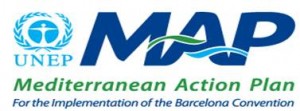 Athens, 22 November 2010 – With the ratification by Syria of two of the most innovative legal instruments for environmental protection, the Offshore and the Integrated Coastal Zone Management (ICZM) Protocols of the Barcelona Convention(1) will soon enter into force. Syria becomes the first among the Mediterranean countries to have ratified the Barcelona Convention, its seven Protocols and all its amendments.
Athens, 22 November 2010 – With the ratification by Syria of two of the most innovative legal instruments for environmental protection, the Offshore and the Integrated Coastal Zone Management (ICZM) Protocols of the Barcelona Convention(1) will soon enter into force. Syria becomes the first among the Mediterranean countries to have ratified the Barcelona Convention, its seven Protocols and all its amendments.
“At a time of serious concerns for our environment, as witnessed by the accident in the Gulf of Mexico and the record number of natural disasters linked to climatic variations, Mediterranean countries stepped up one gear in their efforts to protect our sea and coastal area. The leadership of Syria should be commended”, said Maria Luisa Silva Mejias, UNEP/MAP Deputy Coordinator and Officer in charge. “The entry into force of these two Protocols provides the region with unique and powerful legal instruments to address environmental threats linked to offshore platforms and coastal degradation. These developments will allow Mediterranean countries to activate a regional response mechanism in case an accident similar to the one on the Gulf of Mexico would happen, and will also allow for better preparedness and protection of our coasts against climate variability”.
Signed in January 2008, the ICZM Protocol(2), which is a unique legal instrument in the entire international community, is a key tool for sustainable coastal development, as it provides an effective way of ensuring that human actions are undertaken with a concern for balancing economic, social and environmental goals and priorities in a long-term perspective. It adds provisions on the environmental impact analysis, the protection and sustainable use of coastal areas, particular coastal ecosystems, coastal landscapes and islands, economic activities and cultural heritage.
It also contains useful and innovative tools to help States in addressing threats to the coast such as 100 metres non-building line, participatory approach, undertaking carrying capacity assessment and strategic environmental impact assessments.
The Offshore Protocol(3) aims at protecting the Mediterranean from pollution resulting from exploration and exploitation of the continental shelf, the seabed and its subsoil, and response to accidents, and was signed in October 1994 taking into account the provisions contained in the United Nations Convention on the Law of the Sea (December 1982).
“The Mediterranean Action Plan has been UNEP’s flagship among the regional seas in terms of environmental protection and legislation since its beginning in the early 70s. With the latest ratifications, it confirms its role as a catalytic entity in the Mediterranean region”, said Maria Luisa Silva Mejias.
“We will continue striving to ensure that solid and appropriate legal instruments are in place, and we will renew our efforts to support Mediterranean countries in complying with their commitments under the Barcelona Convention and its seven Protocols”.
Notes to Editors:
(1) The Barcelona Convention is the Convention for the Protection of the Marine Environment and the Coastal Region of the Mediterranean, done at Barcelona on 16 February 1976, and amended on 10 June 1995 to address sustainable development challenges. The Barcelona Convention and its Protocols are the legal basis of the Mediterranean Action Plan (UNEP/MAP), the first Regional Seas Programme developed by the United Nations Environment Programme.
(2) The ICZM Protocol has been ratified by six contracting parties, namely Albania, the EU, France, Slovenia, Spain and Syria.
(3) The Offshore Protocol has been ratified by Albania, Cyprus, Libya, Morocco, Syria and Tunisia.
Please find the News release below
[attachments template=small-with-title include=”1795″]